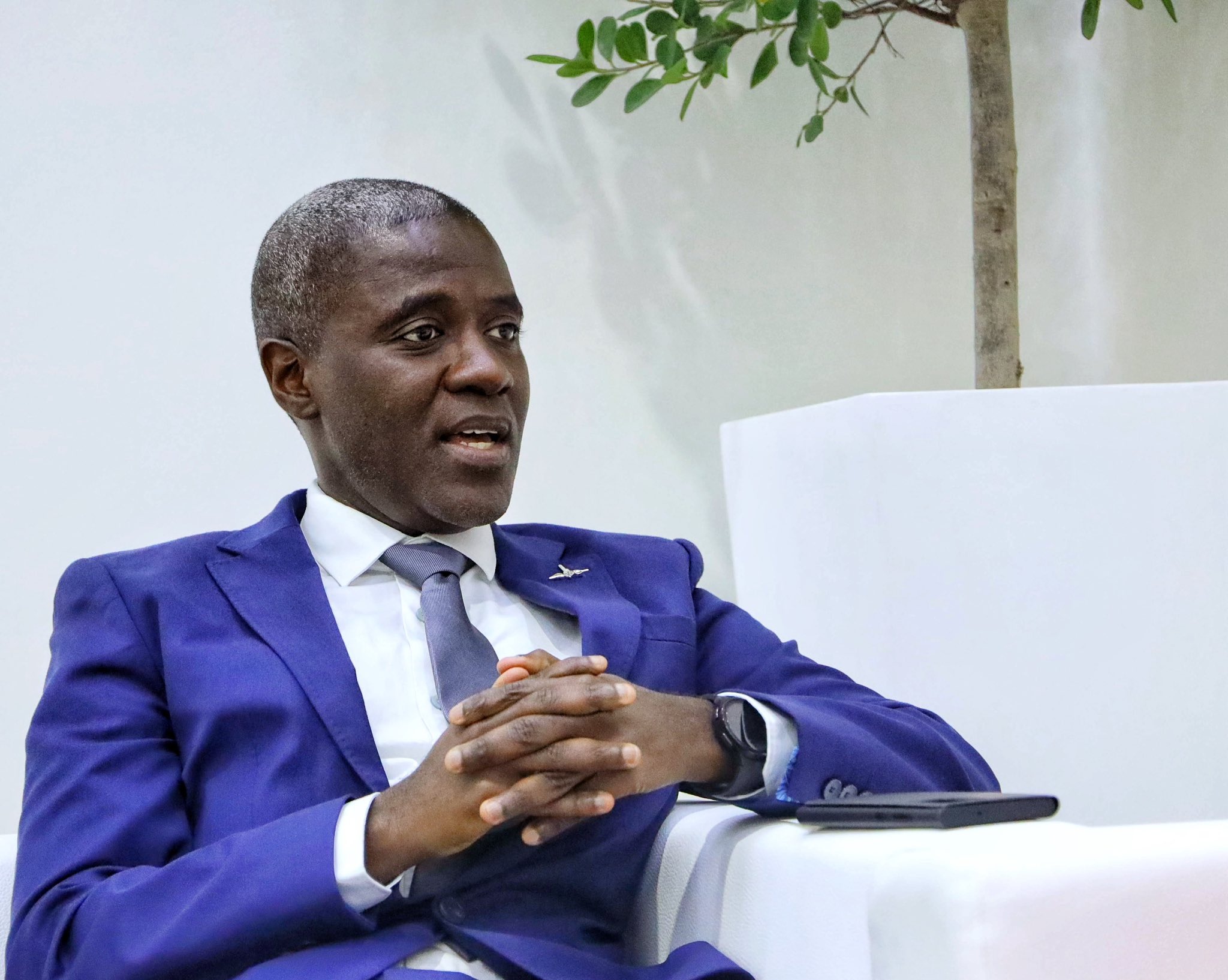Business
NCC calls for stronger judicial role in accelerating Nigeria’s digital transformation
Published
1 year agoon

The Executive Vice Chairman and CEO of the Nigerian Communications Commission (NCC), Dr. Aminu Maida, has emphasized the crucial role of the judiciary in driving Nigeria’s digital transformation, urging judicial officers to actively engage with the evolving digital landscape.
Dr. Maida made this call during his opening address at the 2024 edition of the Annual Workshop for Judges on Legal and Regulatory Issues in the Communications Industry, held at the Sheraton Hotel in Ikeja, Lagos.
This year’s workshop, organized by the NCC in collaboration with the National Judicial Institute (NJI), focuses on the theme, “The Role of the Judiciary in Accelerating Digital Transformation in Nigeria.” Dr. Maida opened his address by underscoring the timeliness and relevance of the theme, particularly in light of the Nigerian government’s push to scale digital transformation across the country.
Dr. Maida noted that the theme of the workshop was a direct response to the urgent need for coordinated action among key stakeholders, including the judiciary, to support Nigeria’s digital economy.
He highlighted the significant role of the judiciary in ensuring the effective implementation of laws and policies that regulate emerging technologies in the country.
“The role of the judiciary in shaping the legal landscape to foster innovation, protect fundamental rights, and resolve disputes in the digital economy cannot be overstated,” Dr. Maida stated. “As the digital age advances, judicial officers must continuously adapt to ensure that the rule of law is as effective and enforceable in the online realm as it is in the physical world.”
READ ALSO: NCC bans Nigerians under the age of 18 from purchasing sim cards
He also praised the ongoing efforts of the judiciary in leveraging technology to enhance the efficiency and transparency of judicial processes. “The work that you do as judges has been transformed over time by technology, improving the pace and quality of justice in Nigeria,” he said.
A significant part of Dr. Maida’s address centered around the protection of telecommunication infrastructure, which he described as the backbone of Nigeria’s digital economy.
The NCC has long advocated for stronger protections against vandalism and other forms of disruption that undermine telecommunication services critical to the digital economy.
Dr. Maida highlighted a landmark development in the protection of telecommunications infrastructure: the signing of a Presidential Order by President Bola Ahmed Tinubu in July 2024.
This Order designates all telecommunications infrastructure as Critical National Information Infrastructure (CNII), offering enhanced legal protections under the Cybercrimes Act of 2024.
Dr. Maida concluded by reiterating the importance of collaboration between the NCC, the judiciary, and other stakeholders in achieving Nigeria’s digital transformation goals.
“A functional digital economy is built on investor and consumer confidence, which are in turn dependent on the rule of law – an essential element provided by the judiciary,” he said.
He also expressed his gratitude to the National Judicial Institute (NJI) for its ongoing partnership in delivering the workshop, acknowledging the Institute’s role in fostering knowledge exchange and professionalism among judicial officers.
Earlier in her keynote address, the Honourable Chief Justice of Nigeria, Hon. Justice Kudirat Motonmori Olatokunbo Kekere-Ekun, underscored the pivotal role of the judiciary in shaping the legal framework that supports Nigeria’s digital transformation.
READ ALSO: NCC to mandate sustainability reporting in new corporate governance code
In her address, the Chief Justice acknowledged the crucial role of telecommunications in driving economic growth and globalization.
However, she also pointed out two significant issues that demand the attention of the judiciary: cybersecurity and the legal challenges arising from the integration of digital technologies in sectors such as banking.
“The increased risk of personal data being misused or compromised by malicious actors necessitates innovative strategies for consumer protection,” she said. “These concerns are not limited to the telecommunications sector alone but also extend to other industries, particularly the banking sector, where digital services are central to daily operations.”
The Chief Justice also pointed to the rising number of legal disputes stemming from the vulnerabilities in digital banking systems, where customers’ online transactions are often compromised by cyberattacks or technological glitches.
With such disputes increasingly entering the courts, Justice Kekere-Ekun stressed that judges must be equipped with the necessary technical knowledge to handle these complex cases effectively.
“As the digital landscape continues to evolve, it is crucial that our judicial officers are equipped with the technical skills needed to adjudicate disputes arising from telecommunications and digital services,” she remarked. “This workshop provides a valuable opportunity to update knowledge, exchange ideas, and explore solutions to the legal challenges posed by the rapidly advancing telecommunications sector.”
“I have no doubt that through our combined efforts, we will be able to secure and bolster the confidence of both investors and stakeholders in the telecommunications sector,” she concluded.
Trending

 Football1 week ago
Football1 week agoChampions League: 12 Clubs knocked out as group phase ends

 News7 days ago
News7 days agoTinubu approves purchase of 2 new satellites to strengthen Nigeria’s digital infrastructure

 Comments and Issues1 week ago
Comments and Issues1 week agoUN Secretary-General Guterres: Rule of Law being replaced by Law of the Jungle

 Comments and Issues1 week ago
Comments and Issues1 week agoYakubu Mohammed: Exit of a good man

 Comments and Issues1 week ago
Comments and Issues1 week agoBeyond Hope: Why External Pressure Cannot Cure Internal Colonialism

 Latest1 week ago
Latest1 week agoKano governor’s aide vows to expose ‘true betrayers’ amid party disputes

 Comments and Issues1 week ago
Comments and Issues1 week agoOkowa, daughter and politics as family business

 Comments and Issues1 week ago
Comments and Issues1 week agoEchoes After Taraba

